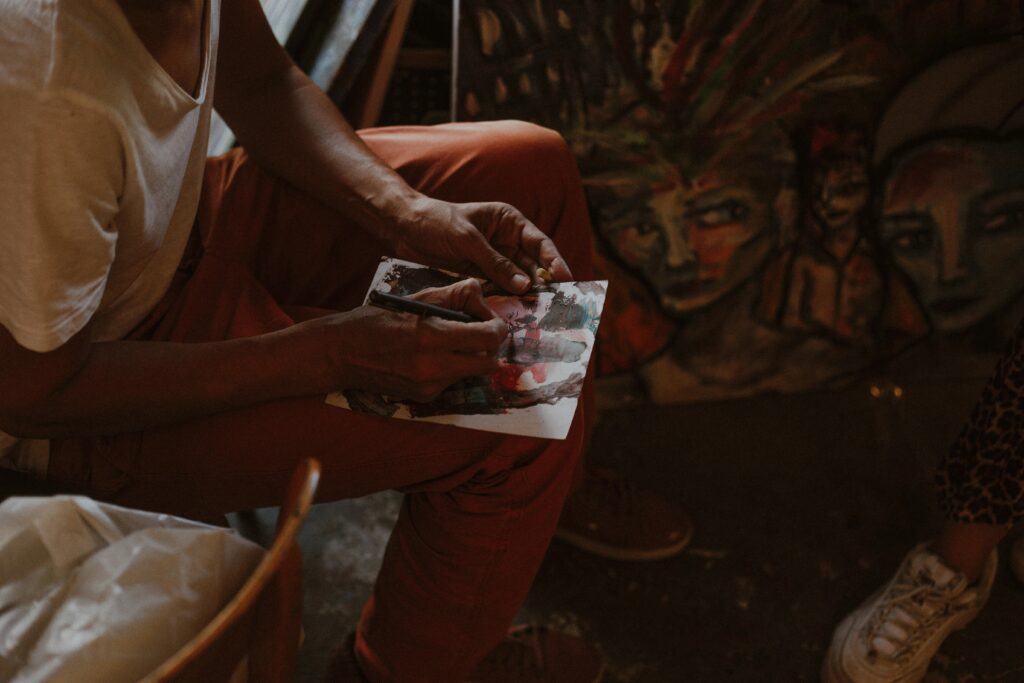……...A True Story to Learn From..……….
In the quiet corners of homes around the world, children are often caught in the crossfire of dreams and expectations. The soft whispers of parental ambition can sometimes drown out the innocent aspirations of a child. While many parents hope to secure a bright future for their children, The pressure to follow certain career paths can cause children to sacrifice their true passions—a sacrifice that comes with a high price.
I had a friend named David who dreamed of becoming a professional artist. His heart was set on colours, canvases, and expressing emotions through his paintings. However, David’s parents had a different vision. They wanted him to become a doctor, just like his father, so they could proudly showcase their son’s achievements in society.

David’s dream of becoming a professional artist was more than just a passing fancy; it was a deep-seated passion that fueled his every thought and action. He often spent hours in his room, surrounded by tubes of paint and blank canvases, lost in a world where he could freely express his emotions and ideas. The vibrant colours he splashed onto the canvas were a reflection of his innermost feelings, a language he felt could convey what words could not.
Whenever he talked about his dreams, his eyes lit up with excitement. “I can see myself in a studio one day,” he would say, his voice filled with enthusiasm. “I want to create pieces that move people, that make them feel something deep inside.” He envisioned his artwork hanging in galleries, admired by others who could appreciate the stories he told through his brushstrokes. David dreamed of connecting with people on an emotional level, using his art to inspire change and provoke thought.

However, this dream came with its own set of high expectations. David believed that if he could succeed as an artist, he would not only fulfil his own aspirations but also prove to his parents that he could achieve greatness outside of the traditional paths they envisioned. He often talked about the impact he wanted to have, saying, “I want to create art that speaks to the soul, that challenges perspectives, and that leaves a lasting impression.”
But with his parents constantly steering him toward a career in medicine, the pressure mounted. Each time they brought up the idea of medical school, David felt a pang of disappointment. He wanted their pride, but he yearned for their support in pursuing his passion. “I just wish they could see how much this means to me,” he shared with me . “It’s not just a hobby; it’s my life’s purpose.”
Despite David’s passion for art, his parents refused to listen. They saw his artistic dreams as impractical and beneath the family’s stature. “We’ve already talked about this,” his father often said. “Being a doctor is a noble profession. It’s stable, brings respect, and you’ll never struggle financially.” David’s protests fell on deaf ears.
David was eventually enrolled in medical school, but the pressure of trying to live up to his parents’ expectations was immense. He spent long, draining hours studying subjects he had no passion for, slowly losing his love for art and any motivation to continue. Though he excelled academically, he felt like a failure inside.

David finds himself torn between two worlds: the structured life his parents envisions and the free-spirited life his heart desires. As he dedicates more time to becoming a doctor, his art dream fades into the background—a silent casualty of forced choices.
Many Parents reinforces these pressures. children are pushed into tracks based on standardised tests and academic performance for sake of parent’s pride , Schools celebrate academic achievements but often overlook creative pursuits, leaving children like David feeling undervalued and unheard. They learn to prioritise grades over passions, losing sight of what truly makes them happy.
The weight of his unfulfilled dreams and the constant pressure eventually took a toll on David’s mental health. He became withdrawn, unhappy, and distant from his parents. What once seemed like a path to pride for his family became a source of deep regret and resentment.
Years passed, and David finished medical school. He got a job as a doctor but found no joy in it. His parents, still proud of their “doctor son,” never realised the emotional cost their pride had on him. In the end, David’s journey wasn’t about his success, but about his parents’ unmet expectations and his lost passion.

Parents should allow their children to make their own life decisions because pursuing one’s passion brings fulfilment, growth, and personal success. When kids choose their path, they’re more likely to find happiness and live confidently, knowing they’ve followed their dreams.
The Importance of Letting Children Choose Their Own Paths in Life ……. Key Reasons:
- Fostering Passion and Talent: Children are naturally more engaged in things they are passionate about. By encouraging their interests, parents help them reach their full potential.
- Avoiding Resentment: Forcing kids into careers they don’t want can cause resentment and strain the parent-child relationship.
- Long-Term Happiness: A life chosen based on passion leads to contentment. Children who are allowed to make their own choices will find joy in their achievements and personal success, rather than living someone else’s dream.
When parents support their children's dreams, the entire family can live happily ever after.
Lesson:
Forcing children to follow paths they don’t want may bring temporary pride, but it can result in long-term emotional and mental struggles. Parents should nurture their children’s unique talents and passions, not dictate their futures. When children are allowed to pursue what they love, they are more likely to succeed and, more importantly, find happiness. It is essential for society to foster an environment where children can freely explore their interests and make their own career choices.
Don’t be this type of parents… https://amomama.com/439083-every-day-after-21-year-old-sons-death.html?utm_campaign=491_584051&utm_medium=social&utm_source=facebook&utm_term=amomama_com
Let us break the silence and encourage our children to dream, create, and thrive in a world that celebrates their unique voices, rather than one that confines them to the shadows of expectation.
Advertisement.




